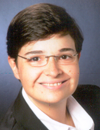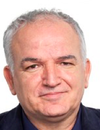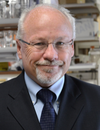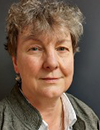| Conferences > Point-of-Care, Biosensors & Mobile Diagnostics Europe 2019 > Keynote Speakers |
| Register | Login |
Nancy AllbrittonKenan Professor of Chemistry and Biomedical Engineering and Chair of the Joint Department of Biomedical Engineering, University of North Carolina and North Carolina State University Nancy L. Allbritton is the Kenan Professor of Chemistry and Biomedical Engineering and Chair of the Joint Department of Biomedical Engineering at the University of North Carolina at Chapel Hill (UNC) and North Carolina State University (NC State). Her research focuses on the development of novel technologies for applications in single-cell analysis, micro-arrays and fluidics, and organ-on-chip and has resulted in over 180 full-length journal publications and patents and led to 15 commercial products. Her research program has been well funded by the National Institutes of Health with $60 million in grant funding since 1994. Four companies have been formed based on her research discoveries: Protein Simple (acquired by Bio-Techne in 2014 for $308M), Intellego (subsequently integrated into International Rectifier), Cell Microsystems (www.cellmicrosystems.com), and Altis Biosystems (www.altisbiosystems.com). Dr. Allbritton is a Fellow of the American Association for the Advancement of Science, the American Institute for Medical & Biological Engineering, and the National Academy of Inventors. She obtained her B.S. in physics from Louisiana State University, M.D. from Johns Hopkins University, and Ph.D. in Medical Physics/Medical Engineering from the Massachusetts Institute of Technology, with a postdoctoral fellowship at Stanford University. |
Martyn BoutelleProfessor of Biomedical Sensors Engineering, Imperial College London Martyn Boutelle is Professor of Biomedical Sensors Engineering in the Department of Bioengineering, Imperial College London, and Associate Provost for Estates Planning for Imperial College. |
John BrennanProfessor and Director, Biointerfaces Institute, McMaster University Professor John Brennan holds the Canada Research Chair in Bioanalytical Chemistry and Biointerfaces (Tier 1) and is Director of the Biointerfaces Institute at McMaster University. He is an expert in the development of biosensors and point-of-care diagnostics, with specific expertise in bioactive paper, high-throughput development of printable biomaterials, and development of solid-phase assays for diagnostics and small molecule screening. Dr. Brennan has published over 200 peer-reviewed papers, given over 150 invited presentations, and has been awarded several patents in the areas of POC diagnostics. |
Jonathan CooperThe Wolfson Chair of Bioengineering, University of Glasgow Professor Jon Cooper holds The Wolfson Chair in Biomedical Engineering. He is an EPSRC Research Fellow and holds a European Research Council Advanced Programme Grant. His major research interests are in ultrasonics, microfluidics and medical diagnostics. He has a track record of spin-out and translation of devices into practice. In one example, he is developing, rapid, zero-cost “origami paper” diagnostics species-specific DNA sensors to identify the cause of infectious disease and inform treatment “in the field” in Asia, India and Africa for point of care testing of infectious diseases in humans and animals from blood, sperm and faecal samples. He was elected as a Fellow of the Royal Academy of Engineering (UK’s national academy of engineering) as well as a Fellow of the Royal Society of Edinburgh (Scotland’s National Academy of arts, humanities and sciences). |
Emmanuel DelamarcheManager Precision Diagnostics, IBM Research - Zürich Dr. Delamarche is currently leading activities on Precision Diagnostics at IBM Research - Zürich with the goal of using expertise in micro/nanotechnology, physics and biochemistry for solving important problems in biology and medicine. One of his main projects deals with the development of portable and precise diagnostic devices using microfluidic concepts and smartphones. In addition to his research, he is also a Lecturer at ETH Zurich and a contributor to scientific panels for grant agencies and governments. He published over 120 papers and is co-inventor on more than 70 patent families. He has received numerous awards from IBM, was named “Master Inventor” by IBM, and received the Werner prize of the Swiss Chemical Society in 2006. |
Thomas LaurellProfessor, Lund University Thomas Laurell is Professor in Medical and Chemical Microsensors at Lund University. Laurell has a background in engineering with a focus on biomedical technology, with a PhD from the technical faculty at Lund University. Laurell has 20 years experience in the development of lab-on-a-chip based bioanalytical and medical diagnostic technology. He was appointed distinguished professor at dept. Biomedical Engineering at Dongguk University, Seoul, Korea in 2009. |
Eloisa Lopez-CalleHead Assay Formats, Roche Diagnostics GmbH Eloisa Lopez-Calle studied Chemistry at the University of Freiburg. She received her Ph.D. from the Institute for Organic Chemistry and Biochemistry, University of Freiburg, in the field of Organic Chemistry, synthesis of new small molecules for Medicinal Chemistry, in 1995. Afterwards she was medicinal chemist in the pharmaceutical industry (Hoechst Marion Roussel, Aventis) for one year. In her subsequent jobs she developed assays and assay reagents for high-throughput screening in drug discovery (Evotec, 9 years) and in-vitro-diagnostics (Analyticon, 2 years). 9 years ago she joined Roche Diagnostics, where she is currently heading the department Assay Formats for the early development new tests and corresponding platforms. |
Arben MerkoçiICREA Professor and Director of the Nanobioelectronics & Biosensors Group, Institut Català de Nanociencia i Nanotecnologia (ICN2), Barcelona Institute of Science and Technology (BIST) Arben Merkoçi is currently ICREA Professor and director of the Nanobioelectronics & Biosensors Group at Institut Català de Nanociencia i Nanotecnologia (ICN2), part of Barcelona Institute of Science and Technology (BIST). After his PhD (1991) at Tirana University (Albania), in the topic of Ion-Selective-Electrodes (ISEs) Dr. Merkoçi worked as postdoc and senior researcher/invited professor in the field of nanobiosensors and lab-on-a-chip technologies in Italy, Spain, USA and since 2006 at ICN2. Prof. Merkoçi research is focused on the design and application of cutting edge nanotechnology and nanoscience based cost/efficient biosensors. The paper/plastic-based nanobiosensors involve integration of biological molecules (DNA, antibodies, cells and enzymes) and other (bio)receptors with micro- and nanostructures/motors and applied in diagnostics, environmental monitoring or safety and security. He has published around 300 peer review research papers (H index: 61 WOS; 79 GS), supervised 30 PhD students and has been invited to give plenary lectures and keynote speeches in around 200 occasions in various countries. Prof. Merkoçi is Co-Editor In Chief of Biosensors and Bioelectronics and member of Editorial Board of other journals. He is co-founder of two spin-off companies, PaperDrop dedicated to nanodiagnostics and GraphenicaLab to electronic printing. See more details on his CV at: https://www.icrea.cat/security/files/researchers/files-maintenance/full_cv_amerkoci_0.pdf |
Holger SchmidtNarinder Kapany Professor of Electrical Engineering, University of California-Santa Cruz Holger Schmidt received the Ph.D. degree in electrical and computer engineering from the University of California Santa Barbara and served as a Postdoctoral Fellow at M.I.T. He is currently the Narinder Kapany Chair of Optoelectronics and Distinguished Professor of Electrical and Computer Engineering at UC Santa Cruz. He directs the W.M. Keck Center for Nanoscale Optofluidics and has served as the Associate Dean for Research in the Baskin School of Engineering. His research interests cover a broad range in photonics and integrated optics, including optofluidic devices, nanopore sensors, nano-magneto-optics, spintronic devices, and ultrafast optics. He has authored more than 400 publications, several book chapters, and co-edited the CRC Handbook of Optofluidics. He is a Fellow of the National Academy of Inventors, the IEEE and the Optical Society of America. He received an NSF Career Award, a Keck Futures Nanotechnology Award, and the Engineering Achievement Award by the IEEE Photonics Society. |
Steve SoperFoundation Distinguished Professor, Director, Center of BioModular Multi-Scale System for Precision Medicine, The University of Kansas Prof. Soper is currently a Foundation Distinguished Professor in Chemistry and Mechanical Engineering at the University of Kansas, Lawrence. Prof. Soper also holds an appointment at Ulsan National Institute of Science and Technology in Ulsan, South Korea, where he is a World Class University Professor. He is also serving as a Science Advisor for a number of major worldwide companies. Prof. Soper is currently on the Editorial Board for Scientific Reports and Journal of Micro- and Nanosystems. |
Shoji TakeuchiProfessor, Center For International Research on Integrative Biomedical Systems (CIBiS), Institute of Industrial Science, The University of Tokyo Shoji Takeuchi received the B.E, M.E., and Dr. Eng. degrees in mechanical engineering from the University of Tokyo, Tokyo, Japan, in 1995, 1997, and 2000, respectively. He is currently a Professor in the Center for International Research on Integrative Biomedical Systems (CIBiS), Institute of Industrial Science (IIS), University of Tokyo. Since 2008, he is a director of Collaborative Research Center for Bio/Nano Hybrid Process at IIS. His current research interests include membrane protein chips, bottom-up tissue engineering and biohybrid MEMS. He received several awards including Young Scientists' Prize, the Commendation for Science and Technology by the Minister of Education, Culture, Sports, Science and Technology in 2008, the JSPS prize from the Japan Society for the Promotion of Science in 2010. |
Elisabeth VerpoorteChair of Analytical Chemistry and Pharmaceutical Analysis, University of Groningen E.M.J. (Sabeth) Verpoorte has more than 30 years of research experience in the microfluidics or lab-on-a-chip field. Her introduction to this technology came in 1990, after her PhD with D. Jed Harrison at the University of Alberta, when she started as a postdoctoral researcher to the pioneering µTAS group headed by Professor Andreas Manz at Ciba Ltd., Basel, Switzerland. In 2003, Sabeth made a strategic switch to assume a Chair in the Groningen Research Institute of Pharmacy, making a foray into a new research environment dominated by cells, tissue and drug development. Projects have involved the development of organ-on-a-chip systems to study drug metabolism (liver chip, gut chip), diagnose endothelial dysfunction and monitor liver tissue function. Efforts have also concentrated on continuous-flow particle separation strategies, paper microfluidics, as well as miniaturized analytical instrumentation (paper spray ionization, multidimensional chromatography). The acquisition of interdisciplinary projects involving scientists from the life sciences, chemistry, and physics disciplines continues to be a driving force in her research. |




